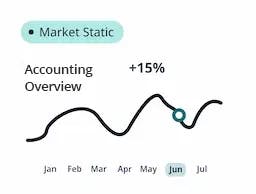
VAT in Oman 2021
Oman will announce a value-added tax (VAT) system associated with the GCC VAT Framework with effect from April 2021. The standard rate of VAT will be 5%, making it one of the lowermost rates in the world. It is consistent with the GCC Unified Agreement with provisions for zero-rating and exceptions in the Oman VAT Law. Oman turns out to be the fourth Gulf Cooperation Council (GCC) member state to implement VAT, along with the UAE, Kingdom of Saudi Arabia, and Bahrain.
+7k
Customers
+26k
Downloads
97%
Client Satisfaction
VAT execution
With VAT being implemented throughout Oman on April 2021, industries have a limited period to get set for VAT. Industries or businesses in Oman should self-assess their VAT registration responsibility in Oman. Therefore, every business should keep VAT records of at least ten years from the end of the year to which they are associated for review.

What is VAT and
How Does it Work?
What is VAT: Value-added tax widely known as VAT is an indirect tax that is charged on the supply of goods and services. It has been executed in more than 160 nations and on April 1st, 2021 Oman will join the association of countries that have executed VAT. The VAT being a new system, businesses need to know the concept of VAT and how the structure works.
How does VAT System work?
The tax is charged on value addition in every phase of the supply chain. This is attained through the perception of input VAT deduction, which permits the industry to set off the VAT paid on procurements known as Input VAT along with Vat collected on the sales know as Output VAT. Let us understand the tenure of VAT Filing
- Businesses functioning with more than a certain threshold must file the VAT return once-a-month.
- Businesses functioning with less than a certain threshold must file the VAT return quarterly.
The Ministry of Finance in Oman may choose to outline a diverse tax filing period for particular businesses that fail to meet the terms. This may lead to fines or penalties.
Exclusive of VAT
Taxable Value = Rate of VAT÷100
Inclusive of VAT
- VAT amount = Value inclusive of tax X tax rate ÷ (100 + tax rate)
- Taxable Value/Price = Value inclusive of tax X 100 ÷ (100 + tax rate)

